‘The trial of the jail killing case should be reopened’
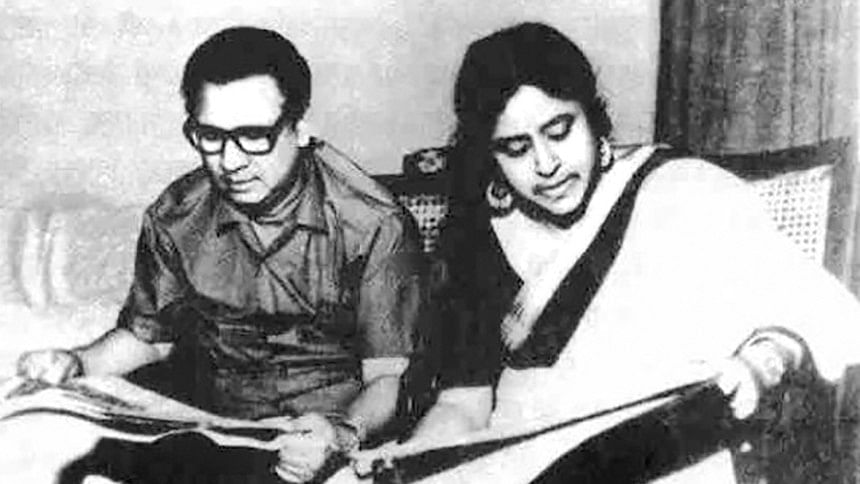
The Daily Star (TDS): We all know Tajuddin Ahmad as a leader, but how was he as a father?
Sharmin Ahmad (SA): My childhood memories with my father are like fragmented clouds, because I never fully had him as a father, since he was frequently sent to jail. Throughout my early years and while I was growing up, he spent long stretches behind bars. Still, whatever time I did get to spend with him profoundly impacted me in shaping my worldview and how I have dealt with things later in life. It stirred me deeply and expanded the very landscape of my thoughts and consciousness.
For instance, he was an animal lover. During the catastrophic cyclone on 12 November 1970, many people sought shelter at our home—751 Satmasjid Road in Dhanmondi. At one point, my mother asked me to look for him because she couldn't find him. When I went searching, I saw him standing alone on the balcony, holding a dead bird in his hand. Tears were flowing down his cheeks. The bird had nested in a money plant that we kept in a pot.
In a voice full of sorrow, he said, "Our home gave shelter to so many people, but it couldn't protect this little bird! If I had taken the plant pot inside, the bird wouldn't have died." He was so saddened that he did not eat anything all day. To this day, whenever I see a bird, I'm reminded of him. If I see a wounded bird, I try to help it.
Everyone can become a politician, but not everyone can become a compassionate, humane leader. A true leader should concern themselves with larger socioeconomic issues like food, clothing, shelter, security, and healthcare—but at the same time, their heart should ache for a wailing bird or its death. Only such a person can be a truly humane leader.
He would rise early, wake us up too, and take us out marching. My father was a lifelong member of the Boy Scouts. In 1942, he also took civil defence training. If there was garbage on the street, he would ask me and my little sister to clean it. Even though we weren't responsible for it, he wanted to teach us that public spaces are also part of our personal responsibility.
Another memory I vividly recall is that he made a vow not to lead a family life until the country was liberated. He informed my mother of this decision. At that time, he was the number one enemy of the Pakistani Hanadar Bahini, because he was leading the Liberation War in Bangabandhu's absence. Our family was on the death list. We moved from one house to another, seeking shelter in about a hundred villages. Wherever we went, villages were being burned, murders were common. Eventually, we became refugees and entered India on 25 May.
We reached Kolkata through Agartala. When we arrived, my father met my mother for only five minutes and reminded her of his vow—not to live a family life until the country was free. He said, "Those who are fighting on the battlefield have also left their families behind, and I am their leader." It was an incredible moment.
At the time, we were living in a small two-room flat. In August, a freedom fighter came to my mother and informed her that my father was unwell. But he had forbidden my mother from contacting him; he said he would reach out himself if needed.
Still, my mother took me and my little sister, along with Badrunnesa Ahmed, to visit him without informing him—at 8 Theatre Road, which was the heart of the Liberation War's strategic command. This was the place where war policies were formulated, weapons arranged, and refugee supplies planned. It was, essentially, the Prime Minister's Office of the provisional government, housed in a BSF building provided by India. We could have preserved that site, but unfortunately, we did not.
However, when we entered my father's room, he was not there. A large map of Bangladesh hung on the wall, marked with pins at every location where a battle was taking place. Though he was the Prime Minister of the government in exile, he also served as the Defence Minister. His desk was cluttered with files, documents, and books. There was a small room beside the office where he used to sleep on a simple cot.
As we stood there, we heard a sound coming from the washroom. When my mother slowly opened the door, we saw him sitting on the floor, washing his shirt. He had only one full-sleeve khaki shirt, which he wore throughout the war, and he was washing it himself because he had a meeting with Senator Kennedy the next day.
When he came out, we saw that his white undershirt was stained red with blood. A boil on his chest had ruptured, and he had a fever. We were too young then to grasp the gravity of the moment. But later in life, when I reflected on it, I realised that this is what true leadership looks like.
It is rare in Bangladesh to find a Prime Minister—especially one leading a war—washing his only shirt by hand. It is a precious memory to me. One more thing I want to say proudly is that my father loved the freedom fighters more than he loved his own children.
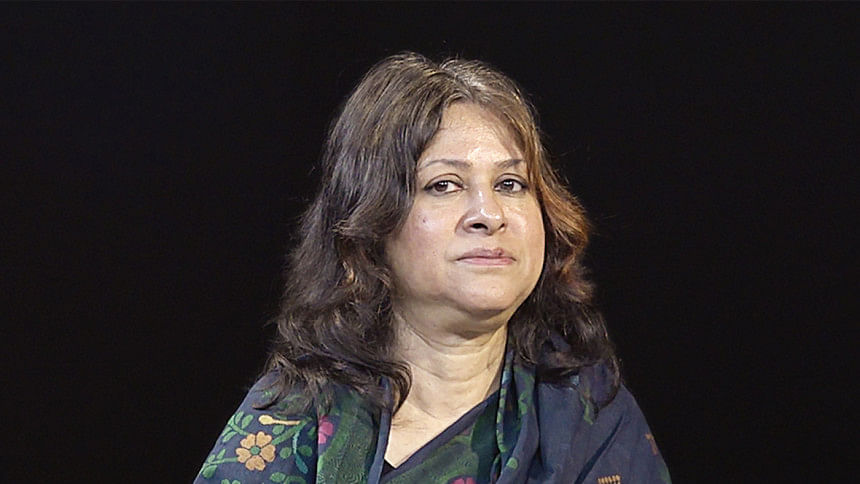
TDS: How did Tajuddin Ahmad's political journey shape his rise to leadership?
SA: I would say his career evolved bit by bit. He built himself from the ground up, like a seed growing gradually into a gigantic tree. At every stage of his career, he fulfilled his responsibilities with the utmost sincerity. He was never overwhelmed by power, because his foundation was strong.
In Bangladesh, we have only one ancestral home—751 Sat Masjid Road. My father bought the land in 1958 for BDT 2,500. The house was built with a BDT 344 loan from the House Building Finance Corporation. Even though he was the Prime Minister and Finance Minister, he never built another house.
After his death, my mother repaid the loan in 1981. She supported our family throughout her life from the rent of that house, because my father spent much of his life in jail. Today's politicians should draw inspiration from him.
When I was younger, I had a dream of studying abroad. But my father did not allow it. He said, "You'll study like every other ordinary child. Once you become an adult, you can go abroad through your own efforts." Now I live in Maryland, near Washington D.C. I see ministers, secretaries, and even general government staff buying million-dollar homes. Where is this money coming from? They are laundering the hard-earned money of the people of Bangladesh.
My father entered politics at the age of 12. His political awakening and development were deeply influenced by three revolutionaries who were imprisoned during British rule and held in Sreepur Thana. At the time, he was studying at the Minor English School. The students would whisper about these detained revolutionaries and try to catch glimpses of them. The revolutionaries gave patriotic books to the children, and Tajuddin Ahmad was among those who received them.
When he used to go to return the books, they would ask, "Did you read it all?" He would reply, "Yes." They would quiz him, and he could answer everything. Impressed, they recommended that he be admitted to a better school. That is how he was enrolled in St Nicholas Institution, then Dhaka Muslim Boys' High School, and finally St Gregory's. In matriculation, in undivided Bengal, he was ranked 12th in the first division. At the intermediate level, he ranked 4th.
I mention this because, alongside his political work, he always had a deep thirst for knowledge and a dedication to learning. In his diaries, he would note every day the time he woke up, the weather, and how many hours he studied. At night, he would read literature or non-fiction. His deep sense of patriotism ultimately led him to join the Awami League; he had previously been a devoted member of the Muslim League.
In 1953, he became the general secretary of the Awami League at the district level, then rose to organising secretary, and in 1966, he became the general secretary of the East Pakistan Awami League. That is how his career developed step by step.
At the same time, if you look at his work, he was deeply thoughtful, analytical, and objective. As one of the main visionaries behind the Six-Point Movement, his insight was well-known. Rehman Sobhan, who was involved in drafting the Six Points, said that the questions Tajuddin asked about the Six-Point demands showed his thorough understanding. He would argue both for and against the points before presenting his own argument. It was remarkable.
When he met Indira Gandhi on 3 April, he told her, "We don't want the internationalisation of this war." He believed that if this happened in 1971, it would undermine the spirit of our Liberation War. He said, "This is our war. You are our ally, but the fight for freedom is ours."
In his 10 April speech, he stated clearly, "Any support we receive from our allies for the war must come without preconditions. My country is not fighting for freedom to become subordinate to any other country."
During World War II, France was occupied by Germany, and when Allied forces like the U.S. and U.K. entered France, they did not sign treaties or ask for permission. Yet, in our war, before the surrender of Pakistan on 16 December 1971, when the Indian Army was preparing to enter with the freedom fighters, Tajuddin Ahmad took the initiative to establish the framework. In November, he clarified that they would enter as an allied force under joint command.
Field Marshal Manekshaw had proposed that they would enter in a single command under the Indian Army, but Tajuddin firmly refused. He said that if that happened, the surrender would be to the Indians. Instead, it must be recorded that the Pakistan Army was surrendering to the allied force of Bangladesh Muktibahini and the Indian Army. That's why A.K. Khandker later said in an interview that if Tajuddin Ahmad had not done that, the victory would have belonged solely to India. But he ensured the protection of Bangladesh's sovereignty even in that moment.
Another true statesmanlike decision he made was formal recognition of Bangladesh. He said: Indian forces must enter only after formal recognition, and whenever our government requests the withdrawal of your forces, you must leave immediately. On that basis, when Bangabandhu later asked for the withdrawal of Indian troops, the Indian Army promptly left. As a result, Indian writers, researchers, and even Indira Gandhi's secretaries, like J.N. Dixit, have acknowledged that it was Tajuddin Ahmad and Syed Nazrul Islam who imposed that framework. In many countries, allied forces did not withdraw even after independence, but in our case, they did relatively quickly.
Tajuddin Ahmad had a powerful vision for this country. He used to tell that to Bangabandhu as well, "Winning independence is easier. You were in jail at that time, but now we have to rebuild the country, and that will be far more difficult."
The spirit of our revolution was rooted in equality, social justice, and human dignity, and we must spread that vision at every level with dedicated, trained, and principled people. If that vision had been implemented, Bangladesh would be one of the most developed countries in the world today.
In the history of Bangladesh, the highest allocation in the national budget for education and agriculture was during his time, because he believed education is the backbone of a nation. He dreamed of creating an educated society, citizens who could critically analyse news, advance in digital technologies, and emerge as intellectual leaders globally. He believed in training skilled teachers, building institutions, and fostering independent thought.
His growth was not limited to becoming a politician, because politicians often think only of today and immediate gains. But a true statesman thinks long-term: if I plant a fruit tree today, even if I don't live to eat its fruit, people will benefit from it for years. Tajuddin Ahmad was that kind of leader.
TDS: You have researched and written on the tragic assassinations of the four national leaders. While a verdict has been delivered in the case, how do you personally reflect on these killings?
SA: In my opinion, the trial was never fair. The verdicts delivered in 2004 and 2008 were a sham, because those who orchestrated the killings were far greater criminals than those who carried them out with weapons. Among the Subahdars, some of whom were never even found, death sentences were handed down.
At the time the killings took place, the first group was led by Subahdar Moslem (also known as Musleh Uddin). A second group later arrived, led by Nayek A. Ali, to ensure that everyone had been killed. At that point, they charged a bayonet into Mansur Ali's eyes because he was still alive. They continued to stab him to make sure he was dead. However, A. Ali was never held accountable for any of this.
There was also another individual who had been in Kolkata for 25 years. When he returned to Bangladesh five or six years ago, he was sentenced to death within a week. The public never learned what his final statement was. If he had indeed been living in Kolkata for that long, it is likely that Indian intelligence was aware of it. So why did they shelter him? He was hanged with little public knowledge or transparency.
Those who were politically involved in the conspiracy never faced any consequences. Khondaker Mostaq Ahmad died without ever being held accountable. The ones who were politically convenient were let go freely, while some members of the armed forces were executed. I believe the trial of the jail killing case should be reopened.
TDS: How, in your view, can Tajuddin Ahmad's philosophy and leadership continue to shape and inspire the journey of a new Bangladesh?
SA: Tajuddin Ahmad's life is incredibly relevant to our times, because we are currently facing a severe leadership crisis. No one is in harmony with another. We have no national unity. The Liberation War is our nucleus of unity, and it is from there that we must draw our inspiration. The leadership of that era is something to be proud of, but these examples are missing from our curriculum.
We are in dire need of intellectual leadership. We cannot progress by ignoring the Liberation War and that era. Tajuddin Ahmad and Bangladesh's Liberation War are inextricably linked. If we diminish him, disrespect him, we, as a nation, will keep stumbling through mistake after mistake.
Let the youth know. It is the state's responsibility to reveal the true history of the Liberation War to the people. People are not fools—if everything is revealed transparently, they can determine for themselves what is true, what is right, and what is authentic.
The interview was taken by Priyam Paul and transcribed by Miftahul Jannat.

 For all latest news, follow The Daily Star's Google News channel.
For all latest news, follow The Daily Star's Google News channel. 



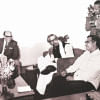
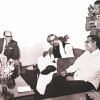

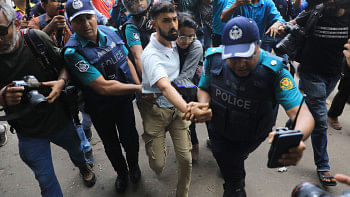
Comments